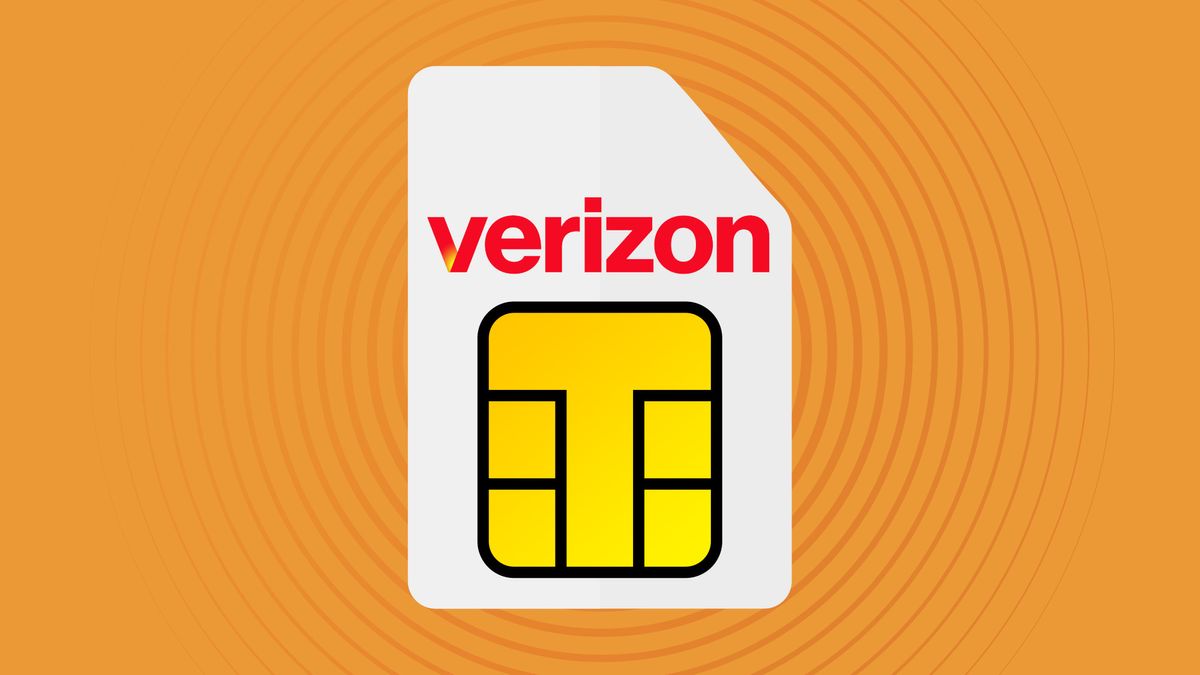Looking for the best Verizon plan but are confused by the carrier’s massive range of options? No worries – we’re here to demystify the carrier’s plans and help our readers get the best possible deal. Generally speaking, the best Verizon plan depends massively on your needs and budget but we’ve laid out everything on this page and compared all the options.
Verizon plans: jump links
Like most carriers, Verizon plans generally fall under two categories – postpaid and prepaid. We’re covering both in this guide right here, so if you’re not sure how much data you’ll need but have an idea of how much you want to spend then you’ll find tons of handy info here. You’ll also find a handy frequently asked questions section just below, where we’ll tackle topics like coverage, price, and 5G access.
As a carrier, Verizon is generally considered to offer the best nationwide coverage on its service, and, while you’ll find its plans generally on the pricey side, they do offer some rather excellent streaming-focused perks. Going postpaid is definitely pricey, but often worth it – not least because the selection of Verizon phones is particularly good if you go for an unlimited plan. You’ll also find that most of the current Verizon deals are also exclusively available on post-paid unlimited plans, although you shouldn’t let this discourage you from checking out the other plan types also.
If you find this week’s best Verizon plans a little too pricey, we’ve also included some honorable mentions from our best cell phone plans guide at the bottom of the article. There you’ll be able to see how Verizon stacks up against the competition, and also check out some of the best prepaid plans from cheaper services.
Added the latest “Unlimited Ultimate” plan tier. Adjusted plan prices (better multi-line savings).
The best Verizon plans: current lineup
Verizon unlimited data plans
Verizon’s headline plans are its post-paid unlimited options. They’re plans that require you to sign up for a three-year service term but they come with laden with the best perks, the speediest download speeds, and they also grant you access to superb deals on the latest phones.
Generally speaking, you’re going to be paying anywhere between $25 to $100 per line depending on your plan and how many lines you have. A relatively new addition to Verizon’s post paid unlimited plans is the carrier’s ‘MyPlan’ system, which allows you to mix-and-match the perks that you want for $10/mo per perk. These include things like streaming services, global data passes, and cloud storage. Note, however, that they are optional so it’s perfectly fine to keep your plan as basic as possible.
Additional perks for postpaid unlimited plans
In addition to the above Verizon myPlan options, customers on either of the new unlimited data plans can add on two perks per plan at a cost of $10 per month per perk. The available perks are as follows:
- Disney+ Premium, Hulu, ESPN+ bundle
- 100 GB mobile hotspot
- Apple One bundle (Apple Music, TV+, Arcade, iCloud)
- Walmart+ membership
- Apple Music Family
- Smartwatch data & safety (discount on a line)
- +play monthly credit
- 3 TravelPass days
- 2 TB cloud storage
Those who love their streaming perks will be well served by the Disney+ bundle or the Apple One bundle. If you’re looking for every-day value, then the Walmart+ membership is quite good for getting discounts on delivery, gas, and access to exclusive deals on Black Friday. Also worth considering are the more niche options on the list – such as discounts on connected smartwatch lines and free TravelPass days, which gives unlimited talk, text, and data in 210 countries.
Verizon prepaid plans
Verizon prepaid plans are flexible non-contract plans that you pay for on a renewable monthly basis. In short, they don’t require credit checks and have pretty reasonable prices but don’t feature most of the perks you find on postpaid plans like streaming services. They’re also subject to slower data speeds all around, not being on the Verizon premium network. That said, they’re a viable choice if you’re strictly on a budget and don’t want to be tied down with an annual contract.
Verizon connected and accessory plans
In addition to phones, Verizon also has plans for a number of smartwatches, tablets, and any number of cellular gadgets it calls connected devices. In general, you can add these to existing Verizon plans for around $10 each, however, if you want a standalone plan, those are also available, here’s a quick list with prices:
Other gadgets you can hook up with a Verizon Connected plan include cars, hotspots, sat navs, and streaming cameras – generally for the same rates as above.
Verizon prepaid data plans
Verizon prepaid data plans are a somewhat newer addition to the carrier’s site and are essentially replacements for the old shared data plans. They’re designed for multiple cellular devices to use (tablets, smartwatches, etc) but don’t feature any of the usual minutes or texts you’d get with a standard phone plan. Unlike the old shared data plans, they’re also prepaid now instead of postpaid, which makes them pretty flexible in regard to contracts.
Note, Verizon prepaid data plans are best used as add-ons to an existing prepaid phone plan. Upfront, these plans are quite pricey but adding them to an existing account means a $30 per month discount per line. Here’s the pricing:
- 5GB plan -$40/mo ($10 as additional line)
- 25GB plan – $60/mo ($30 as additional line)
- 100GB plan w/ Ultra Wideband 5G – $80/mo ($50 as additional line)
- 150GB plan w/ Ultra Wideband 5G – $100/mo ($70 as additional line)
As you can see, the two pricier tiers (100GB and 150GB) feature unlimited access to Verizon’s 5G Ultra Wideband network. All plan tiers, however, have HD video steam as per standard.
Verizon plan pricing: postpaid vs prepaid
Like most carriers, Verizon plan pricing falls into two categories – postpaid and prepaid. With the postpaid plans, you’re going to be signing up for a long-term (24 months) contract and be paying your bills at the end of the month until your term is up. Generally speaking, these plans also entitle you to any number of awesome Verizon deals each month, which will allow you to upgrade or bag a new phone for a cut down rate.
Going prepaid means you’ll generally be paying at the start of each month and won’t be tied down into a lengthy contract. That gives them more flexibility in general, although Verizon does operate a loyalty scheme that reserves the best rates for those who carry on their plan for longer. This is of course a little cheeky as it’s looking to tie people in, offsetting that prepaid flexibility, and it’s also worth noting that Verizon tends to reserve its deals on new phones for postpaid customers only.
Visible wireless plans: FAQ
What’s Verizon’s coverage like?
Verizon is generally considered to have the best coverage nationwide out of all the major carriers – with most sources putting their overall coverage at about 70% for its 4G LTE network. Things, however, do get a little more complicated when you start to think about the 5G network – which is still in its inception right now at most major carriers. In this regard, Verizon currently only has about 11% coverage nationwide, mostly in the big cities. If you’re looking for coverage in your area specifically, you can see the current up-to-date coverage map right here – including the option to input your local Zip Code.
Does Verizon have 5G on all its plans?
On paper, yes, all Verizon plans do have access to the services 5G network, although it’s worth noting that not all 5G data plans on Verizon offer equal speeds across the board.
Verizon actually offers two tiers of 5G access – a standard “5G” network, which ruins simultaneously with the existing 4G LTE network, and a fancy pants “5G Ultra Wideband” network, which runs on a different band altogether. In a nutshell, the cheaper Verizon plans make use of the standard 5G network while the pricier ones get full access to the Wideband one. As you’d expect, you’ll get blazingly fast speeds on the Wideband network although it’s worth noting that it’s not that widely available outside of the big cities yet.
Why are Verizon plans so expensive?
Cell phone plans via the major carriers in general tend to be a lot pricier than those offered by the smaller prepaid carriers like Visible and Mint Mobile. This is generally explained by the fact the big carriers physically operate the networks that all carriers, both big and small, use to provide service and therefore have to spend more to maintain them. Verizon has particularly pricey plans, however, which are somewhat offset by the fact that they tend to offer the best speeds and perks overall on their plans.
If you’re looking for a more cost-effective option, we recommend checking out our section on Verizon vs the competition just down below.
What’s the best Verizon plan for families?
Generally speaking, the best Verizon plan for families is going to be one of the postpaid unlimited plans, which come with the benefit of not having to worry about limitations, having tons of perks, and also feature discounts for multiple lines added per plan.
The Verizon unlimited postpaid plans also feature a unique ‘mix-and-match’ option that will allow you to add lines under a different tier of plan if you like. Using this, for example, you could have two plans under the basic ‘Start Unlimited’ plan, one under the premium ‘Get More’ plan, and then an additional ‘Just Kids’ plan – which is a unique child-friendly plan only offered in addition to at least one other unlimited data plan.
What’s the best Verizon plan for seniors?
Verizon only operates one plan for Seniors – its 55 Plus plan, which currently starts at $60 for one line and $80 for two lines. It’s actually a very generous plan for Verizon, but currently it’s open to Florida residents only unfortunately. If you’re a senior living outside of Florida, we recommend checking out our alternatives just down below.
Verizon vs the competition

The best AT&T plans generally offer the hottest competition for Verizon each month by offering a very similar service, and, on the whole ever-so-slightly cheaper prices across the board. Like Verizon, AT&T has an ever-expanding 5G network and a focus on offering speedy unlimited data plans. When it comes to coverage, AT&T is slightly behind on 4G, however, and it also tends to offer more ‘stripped-down’ plans without the sort of perks that Verizon offers – like free streaming service subscriptions for example.
A really, really great low-cost alternative to Verizon is Visible – which is a smaller prepaid carrier that Verizon actually owns and operates as a sub-network. Visible’s claim to fame is their all-inclusive unlimited Visible wireless plan for just $40 a month – which is absolutely amazing value. Unlike Verizon customers on the main network, however, Visible users will be subject to deprioritization and slower speeds when the network is busy, so bear that in mind.
Also worth checking out is this week’s Mint Mobile plans, which is another top choice if you’re looking to save on your bills. With plans starting at just $15 a month, and an unlimited data plan for just $30, Mint is definitely a good option for those on a budget or for seniors in particular. However, this prepaid carrier operates under the T-Mobile network, so some Verizon phones may not be compatible unless they’re specifically unlocked.








/cdn.vox-cdn.com/uploads/chorus_asset/file/25546252/STK169_Mark_Zuckerburg_CVIRGINIA_D.jpg)

